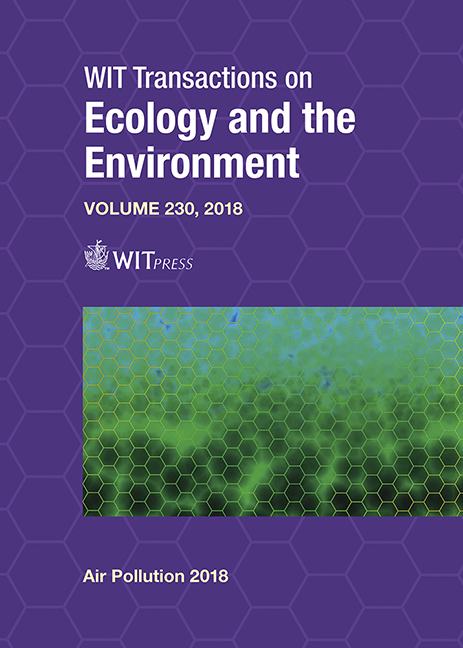MICROANALYSIS AND SOURCE APPORTIONMENT OF PARTICULATE EMISSIONS FROM ANTHROPOGENIC SOURCES IN TWO INDIAN CITIES
Price
Free (open access)
Transaction
Volume
230
Pages
13
Page Range
51 - 63
Published
2018
Paper DOI
10.2495/AIR180051
Copyright
WIT Press
Author(s)
SARAGUR MADANAYAK SHIVA NAGENDRA, ANJU ELIZBATH PETER, JYOTHI S. MENON, AVINASH BALACHANDRA AKOLKAR
Abstract
The morphological and elemental characteristics of ambient particulate matter (PM) collected at two contrasting Indian cities were investigated. Single particle analysis by scanning electron microscopy combined with energy dispersive spectroscopy was carried out on the PM collected at residential, commercial and industrial sites in Delhi and Chennai cities during winter and monsoon seasons. The more diversity in morphological and elemental composition of PM in Delhi city was observed as compared to Chennai city revealed the complexity in source characteristics. The trans-boundary pollution sources were also found to be a major contributor in Delhi city. Mineral particles with a mixed origin of crustal and anthropogenic sources were identified as most abundant species in ambient air, irrespective of types of sampling locations. Even though combustion borne particles were found to be dominant in both the cities, their characteristics were entirely different. The meteorological conditions were also having a profound influence on particle morphology. Source apportionment of PM by UNMIX model indicated that biomass burning and coal combustion (30%) and re-suspension of traffic induced crustal elements (19%) to be the dominant source contributors in Delhi. Vehicular emissions and sea salt spray (30%), biomass and garbage burning (20%) were the identified potential source contributors to PM in Chennai. The present study indicated that source-based abatement strategies will be helpful to abate the present particulate pollution faced by Indian cities.
Keywords
particulate matter, microanalysis, particle morphology, elemental composition, source apportionment





